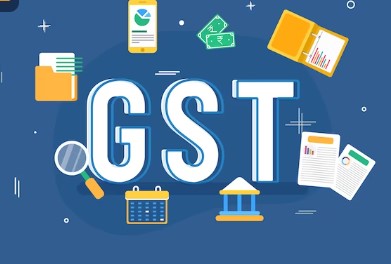
it's pocket friendly

it's hassle free

it's instant

it's completely online


it's pocket friendly

it's hassle free

it's instant

it's completely online
All Inclusive Transparent Pricing #NoHiddenCharges
This pricing plan includes free consultation
Fill inquiry form below to pay later
This pricing plan includes free consultation
Fill inquiry form below to pay later
This pricing plan includes free consultation
Fill inquiry form below to pay later
This pricing plan includes free consultation
Fill inquiry form below to pay later
The modification or amendment of GST (Goods and Services Tax) refers to the process of making changes or alterations to GST-related information or details after the initial registration or filing. The GST framework allows registered taxpayers to update or modify various details to ensure accuracy, compliance, and alignment with their business operations.
Key aspects related to the modification or amendment of GST:
Reasons for Modification: Taxpayers might require modifications in their GST registration due to changes in business details such as business address, contact information, legal entity type, business activities, turnover, addition or deletion of partners/directors, or any other relevant particulars.
Types of Modifications: GST amendments can include changes in the GST registration particulars, such as the addition or deletion of goods or services, updating bank account details, changes in authorized signatories, and modifications in the GST return details.
Procedure for GST Modification: Taxpayers can typically modify or amend GST details through the online GST portal by logging into their GST account. The portal provides specific sections for making changes to different particulars, and taxpayers need to follow the prescribed procedures and documentation requirements as specified by tax authorities.
Documentation for Amendments: Depending on the type of modification, taxpayers may be required to provide supporting documents to substantiate the changes requested. For instance, changes in business particulars might require updated address proofs or legal documents reflecting the modifications.
Timeline and Compliance: Taxpayers need to ensure that modifications are made within the specified timelines and in compliance with GST regulations. Delayed or inaccurate modifications may result in penalties or non-compliance issues.
Impact on GST Returns and Compliance: Amendments in GST details might impact the filing of GST returns, input tax credit claims, tax liability calculations, and overall compliance. Hence, it’s crucial to ensure accuracy in the modified information to avoid discrepancies.
Communication and Updates: Tax authorities often communicate changes or modifications made by taxpayers through the GST portal. It’s essential to keep track of these updates and verify the modified information for accuracy.
The modification or amendment process in GST allows registered taxpayers to update their information in line with business changes or rectify errors. Ensuring accurate and updated details in the GST registration helps maintain compliance with tax regulations and facilitates smooth operations within the GST framework.
Modification or amendment of GST details is not mandatory in all cases but becomes necessary when there are changes in business particulars that impact GST-related information. While some modifications might be voluntary, others could be crucial for maintaining accurate records and compliance with GST regulations.
In certain situations, it’s mandatory to update GST details to ensure alignment with current business operations. For example:
Changes in Business Information: If there are alterations in business address, contact details, legal entity type, or other key particulars, updating these details in the GST registration becomes necessary for accurate record-keeping.
Business Activities or Turnover: Changes in business activities, turnover thresholds, or the addition/removal of partners or directors might require modifications in the GST registration to reflect the updated business structure.
Compliance with GST Laws: To comply with GST laws and regulations, it might be mandatory to amend GST details if there are discrepancies or errors in the initially submitted information.
While not every change demands immediate modification in the GST registration, certain alterations may need prompt updates to maintain compliance and accuracy. Failing to make necessary modifications within the specified timelines or in cases where it’s mandatory might result in non-compliance issues or penalties.
Therefore, while some modifications are optional, others are essential to ensure accurate representation of business information and adherence to GST laws and regulations. Taxpayers should review their GST details periodically and make amendments whenever necessary to avoid potential compliance issues.
General Documents / Informations Required from all assessees:
Application for Modification: A formal application for the modification or amendment of GST details, specifying the changes required and the reasons for the modification.
Supporting Documents for Changes: Depending on the nature of the modifications, supporting documents may include:
Identification Documents: Personal identification documents of the authorized signatory or proprietor, such as Aadhar card, passport, or driver’s license, along with address proof.
Other Specific Documents: Any other documents as specified by the tax authorities based on the nature of the modifications or amendments being requested.
The requirement for a due date regarding the modification or amendment of GST details depends on the specific nature of the changes and the guidelines provided by the tax authorities.
Generally, while some modifications might not have strict deadlines, certain changes in GST details, especially those impacting compliance or reflecting current business operations, might have prescribed timelines within which the modifications should be made.
For instance:
Failing to make necessary modifications within the specified timelines, especially in cases where it’s mandatory or crucial for compliance, might lead to penalties or non-compliance issues.
Taxpayers are encouraged to regularly review their GST details and make amendments promptly when changes occur. While not all modifications have explicit due dates, complying with timely updates is essential to avoid potential penalties and ensure accurate representation of business information within the GST framework.
Modifications become necessary when there are changes in business particulars such as address, contact information, legal entity type, turnover, or other key details impacting GST records.
Taxpayers usually initiate the modification process by logging into the GST portal and accessing the relevant section for making changes. A formal application and supporting documents might be necessary.
Required documents may include updated address proofs, legal documents reflecting changes in business structure, identification documents of authorized signatories, and other supporting documents based on the nature of the modifications.
While some changes might not have strict deadlines, certain modifications impacting compliance or reflecting current business operations might have prescribed timelines for updates to ensure accuracy and compliance.
Failure to make essential modifications within specified timelines, especially when mandatory for compliance, might result in penalties or non-compliance issues.
Yes, taxpayers can voluntarily update or amend their GST details whenever necessary to ensure accurate records and compliance with GST laws.
The processing time for modifications can vary. Generally, after submission, tax authorities review documents before updating details. Taxpayers may follow up for updates on the status.
Taxpayers can seek guidance from the GST helpdesk, consult tax professionals, or refer to the official GST portal for information and support regarding the modification or amendment of GST details
Note – In case you are not able to fill this form contact @ 91-9871023251
